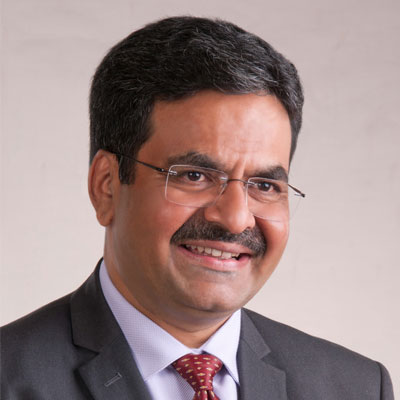Penile cancer, though relatively uncommon, is a serious urological condition that requires prompt diagnosis and expert treatment. With over 27 years of specialized experience in urology, Dr. Ashit Shah, head of Aashray Urology Institute in Vadodara, Gujarat, offers comprehensive care and advanced treatment options to effectively manage penile cancer and other urological cancers. In this article, we’ll discuss the symptoms, causes, and treatment options for penile cancer in detail, providing valuable information to encourage early diagnosis and consultation with a qualified specialist.
Symptoms of Penile Cancer
The biggest limitation for diagnosing penile cancer is the hesitancy of patients to seek medical advice, early detection is crucial for successfully managing penile cancer. Symptoms may vary, but patients are advised to seek medical advice if they experience any of the following:
- Lesions or Growths: Any visible lumps, sores, or growths on the penis, especially on the glans (head) or foreskin, may be an early sign of penile cancer.
- Skin Changes: Unusual color changes in the penile skin, thickening, or hardening may indicate cancerous developments.
- Discharge: A foul-smelling discharge from under the foreskin can signal underlying infections or malignancy.
- Bleeding: Bleeding from the penis or blood visible in the urine should not be ignored and requires immediate medical attention.
- Pain and Discomfort: Persistent pain, soreness, or inflammation in the penile area, especially if unrelated to any recent injury, can be a red flag
These symptoms may also be associated with other urological conditions, so consulting a specialist like Dr. Ashit Shah ensures an accurate diagnosis.
Causes and Risk Factors
The exact cause of penile cancer is not fully understood, but several risk factors have been identified:
- Human Papillomavirus (HPV) Infection: Certain types of HPV, a sexually transmitted infection, are linked to a higher risk of penile cancer.
- Poor Genital Hygiene: Men who practice poor hygiene, especially those who are uncircumcised, may have an increased risk due to potential accumulation of smegma (a combination of dead skin cells and oils).
- Smoking: The chemicals in tobacco can weaken immune function, increasing susceptibility to various cancers, including penile cancer.
- Age: Although penile cancer can affect younger men, it is more commonly seen in men over the age of 50.
- Phimosis: This condition, where the foreskin is too tight to be retracted over the glans, can lead to infections and inflammation, contributing to cancer risk.
Understanding these risk factors and maintaining good hygiene, as well as avoiding known carcinogens like tobacco, may reduce one’s risk.
Diagnosis of Penile Cancer
Accurate diagnosis is essential for effective treatment. At Aashray Urology Institute, Dr. Ashit Shah uses state-of-the-art diagnostic tools to ensure timely and reliable results. Common diagnostic steps include:
- Physical Examination: Initial examination of any swelling, mass, inguinal region examination, or other symptoms.
- Biopsy: Removal of a small tissue sample for lab analysis to confirm the presence of cancer cells and determine the specific type of cancer.
- Imaging Tests: CT scans and ultrasound may be used to assess if the cancer has spread to other parts of the body, such as lymph nodes.
With his extensive experience and advanced diagnostic methods, Dr. Shah ensures patients receive an accurate and comprehensive diagnosis.
Treatment Options
Dr. Ashit Shah’s patient-centered approach and commitment to ethical practices guide each patient’s personalized treatment plan. Treatments are carefully selected based on the cancer’s stage, location, and individual patient factors
1. Surgery
- Lymph Node Dissection: Cancerous cells may spread to the lymph nodes; in such cases, a lymph node dissection removes affected nodes to control cancer spread.
- Circumcision: For cancers limited to the foreskin, circumcision may be a straightforward, effective option.
- Partial or Total Penectomy: If cancer has progressed beyond the foreskin, partial or total removal of the penis may be necessary to prevent further spread.
2. Radiation Therapy
- Radiation therapy uses high-energy beams to target and destroy cancer cells. This may be used as a primary treatment or in combination with surgery (in selected cases only).
3. Chemotherapy
- Targeted therapy is a newer approach that specifically targets cancer cells, reducing harm to surrounding healthy tissues.
4. Targeted Therapy
- In cases where cancer has metastasized (spread beyond the penile tissue), chemotherapy may be recommended. This treatment targets cancer cells throughout the body.
-
Empowering Men’s Health: Comprehensive Penile Cancer Care and Treatment
Penile cancer is a rare but serious condition that requires prompt attention and specialized care. Our advanced treatment options for penile cancer include state-of-the-art diagnostic techniques and personalized treatment plans, tailored to each patient's needs. From early-stage management to surgical and non-surgical interventions, our team provides compassionate, expert support every step of the way. Discover comprehensive penile cancer care that prioritizes your health, confidence, and quality of life.
Read More
Aashray Urology Institute: Expertise and Experience
Dr. Ashit Shah leads Aashray Urology Institute in Vadodara, known for its dedication to advanced and ethical medical care. Aashray Urology Institute is Gujarat’s only NABH-accredited urology super-specialty hospital, reflecting Dr. Shah’s commitment to high standards of care.
- Over 18,000 Successful Surgeries: With extensive experience in both minor and complex urological surgeries, Dr. Shah has managed thousands of successful cases.
- Qualifications: MB, MS, DNB (Urology), and DLU (France). Dr. Shah’s training includes advanced studies at Louis Pasteur University in France, where he specialized in laparoscopic urology.
- Professional Associations: Dr. Shah is a member of the Indian Medical Association, Urological Society of India, and American Urological Association.
- Recognition: He was awarded the ‘Inspiring Urologist Award’ by The Economic Times in 2019 for his dedication to ethical medical practices.
When to Seek Medical Advice
Penile cancer, like many cancers, is more effectively treated when detected early. If you or someone you know experiences any of the symptoms discussed above, it’s essential to seek timely consultation with a specialist like Dr. Ashit Shah at Aashray Urology Institute.
Contact Aashray Urology Institute
Dr. Ashit Shah and his team offer personalized, compassionate care to patients facing urological challenges, ensuring the highest standard of treatment and support at every stage.For inquiries or to schedule an appointment, please contact Aashray Urology Institute in Vadodara.





